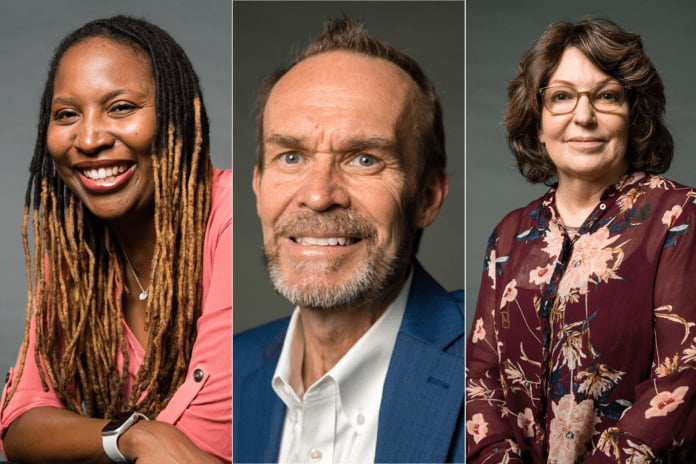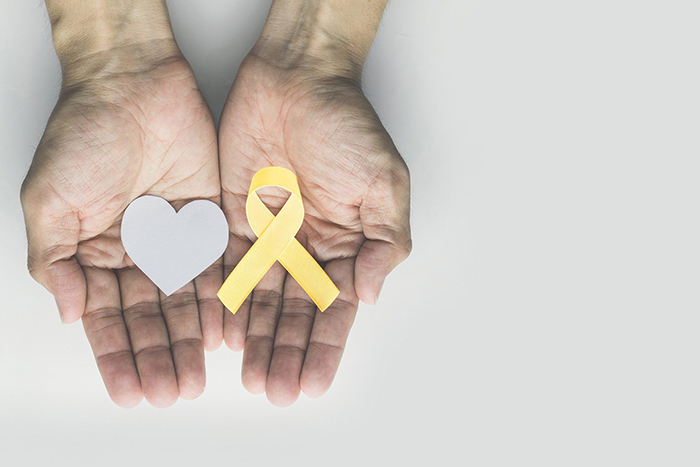“We can use the health crisis of cancer as an opportunity to think about how to live well,” says Baer, “really be mindful of how we’re spending our time and energies, and lean into healthier day-to-day habits.”
Acceptance can mean thinking about what survivorship activities may serve you well. One is eating an anti-inflammatory diet. Could that help you with your energy or mood? How about having a safe movement plan, an exercise plan so that you are healthy and strong enough to manage treatment or deal with any health issues that come up?
Baer says some people are very serious about reducing their stress after their cancer diagnosis and treatment. Some think deeply about their work or relationships and who they spend time with, so they can focus on being engaged in healthy, meaningful relationships instead of ones that drain their energy or create stress.
Another important part of acceptance is choosing words and language you are comfortable with to describe your cancer experience. “Finding words that resonate with you, like ‘new normal,’ may work for some people but don’t resonate for others. ‘Survivor’ may work for some, especially for people who have that fighting spirit idea that this is a battle they’re in and they’re ready to charge ahead and do what they need to do to win this battle.”
But some people, she says, “don’t like thinking about treating their bodies and taking care of their health as a battle, a fight or war. They want to think about it in terms of medicine and self-care. So having the right language helps people get their minds around what they’re doing to be as healthy as possible.”
Becoming an Empowered Advocate for Yourself
Following a cancer diagnosis, it can be empowering to think about how to take care of yourself and — with the direction of experts in the field — manage your own health and medical care during treatment. “You say to yourself, ‘This is information I’ve learned about my body, and the more that I learn, the more empowered I am to take the best possible care of my body.’”
Being empowered means asking any questions you may have. Baer recommends writing down your questions before you go to an appointment and bring them with you. Do some reading on websites such as those linked below.
“And then,” says Baer, being empowered means “reminding yourself that your medical team is there to help.” She adds, “There’s a huge team of people at Winship, and you may not see them all every time you come in, but you can be connected with any of them along the way, especially if you speak up in a clinic meeting, if something is feeling overwhelming or you’re not sure what to do next.”
The best benefit of acceptance and being your own empowered self-advocate is that it offers you the best chance to live well with or after cancer.
“Nobody wants to have to deal with cancer,” says Baer. “But thank goodness we paid attention to what was going on with your body so we can help take care of your body, so you can live as well as possible. Survivorship is about being here and now and making the most of the life that you have now. This is what we have, an opportunity right now.”
Survivorship Resources at Winship
At Winship, we understand that life after a cancer diagnosis can be anything but “normal.” We’re here to help our patients and their loved ones to transition through and after their treatment. Our survivorship program offers a personalized survivorship care plan, long-term support and follow-up care, as well as educational sessions and support groups for patients and their caregivers and families. Learn more about Winship’s Survivorship Program.
Young adult cancer survivors may have ongoing health complications related to their cancer treatment, called late effects, which may occur years after treatment ends. Monitoring your health on a yearly basis can help prevent problems and can also help you better manage late effects. Learn more about resources available from Winship’s Young Adult Survivorship Program.
Additional Resources




